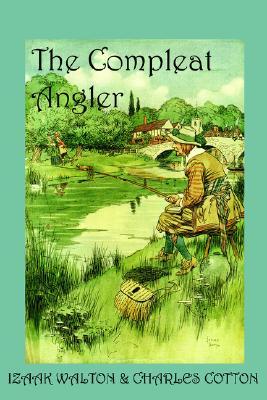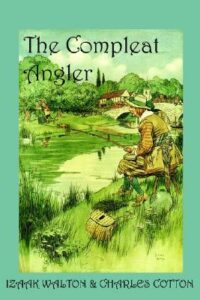Chapter XII — The Compleat Angler
byChapter XII – The Compleat Angler begins with a vibrant conversation between Piscator and Venator, who shift their attention to the perch, a fish admired for its distinctive behavior and aggressive spirit. Piscator presents the perch as a striking and energetic fish, armed with bristled fins and armored scales, making it not only a lively catch but a creature well-suited to survive in competitive waters. He highlights its predatory instincts, noting that perch will attack smaller fish—including their own species—when food is scarce, a trait that makes them as thrilling to catch as trout or pike. Their boldness at the hook often surprises beginners, offering both an exciting challenge and a sense of accomplishment. Venator listens intently as the conversation explores the perch’s peculiar nature and significance among different angling traditions, both local and abroad. This exchange sets a thoughtful and practical tone for the rest of the chapter.
The discussion soon transitions into the perch’s reputation beyond English waters. In Italy, Aldrovandus observed how even the smallest perch were prized at the table, while German anglers valued those from the River Rhine for their clean flavor and ease of digestion. Piscator notes these cultural preferences with admiration, emphasizing that perch have been recommended for their restorative qualities—particularly for those recovering from illness, wounds, or childbirth. This focus on health adds another layer to the perch’s value, linking the act of fishing not just to sport, but also to nourishment and care. Additionally, mention is made of a curious stone found within the perch’s head, believed in foreign apothecaries to hold medicinal properties, a fact that sparks Venator’s fascination. Through this blend of science, folklore, and culinary appreciation, the perch emerges as a species rich with meaning across cultures.
Piscator continues with tales of remarkable catches, referencing Sir Abraham Williams, who once landed a perch nearly two feet in length. Such fish are rare, he admits, but not unheard of in rivers that offer sufficient depth, shelter, and prey. The perch’s natural defenses are cleverly noted too—it can flare its dorsal spines like a turkey-cock, deterring even aggressive predators such as pike. These details remind readers of the strategic complexity that underlies angling, where understanding the habits and traits of each fish improves both one’s skill and success. While perch may not grow as quickly as other species, their strength and tenacity make them worth the wait. The joy lies not just in catching, but in observing the small victories each fish earns in its struggle for survival.
The rhythm of the conversation shifts as Piscator explains the best seasons and hours for catching perch. Cold weather dulls their appetite, but once spring arrives—and mulberry trees begin to bud—anglers can expect them to bite with enthusiasm, especially during the midday sun. Piscator recommends an assortment of baits: lively worms for their movement, small frogs for their scent, and minnows for their visual appeal. The bait, he says, must be placed carefully and naturally, as perch are watchful and intelligent in their pursuit. His advice is practical yet poetic, a reminder that angling, when done thoughtfully, is as much about rhythm and timing as it is about gear. Every choice an angler makes—from bait to water depth—becomes a silent dialogue with nature.
Despite a sudden change in the weather, Venator encourages their lesson to continue, suggesting that the company and conversation are reward enough to press on. He humorously likens fishing to a kind of usury, where interest is earned not in gold, but in stories, smiles, and the companionship of a fellow angler. This metaphor lightens the mood and captures the deeper purpose behind their outing—not merely to catch fish, but to share time in reflection and peace. Their moment is capped with a literary flourish, as Piscator recites lines from Doctor Donne that celebrate the serenity of rivers and the joyful ritual of angling. The poetry speaks to a timeless truth: that beneath every cast line lies a connection to stillness, tradition, and the small wonders of the natural world. Through perch and poetry alike, the chapter honors both the sport and the soul of fishing.


